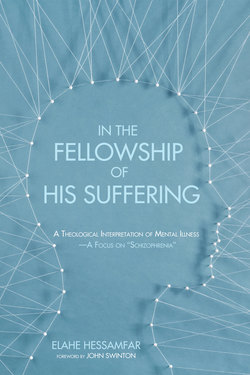Описание книги
"Schizophrenia" is by many accounts the most devastating illness of our time. In this book, Elahe Hessamfar uses her personal encounter with her daughter's illness to bring the reader to experience the pain and anguish of those who suffer so intensely. She candidly discusses the gripping and dark realities her family has faced in the midst of this journey and exposes that the ride isn't easy, but it can be fruitful and purposeful, and it can be a journey of joy and peace if understood from the intended perspective.
This is a fascinating and deeply theological portrayal of madness under the mighty hand of God. It challenges and awakens the reader to a heightened awareness about self, community, pain, brokenness, sin, grace, and redemption. This is the first truly biblically based, theological interpretation of madness in conversation with psychiatry and social sciences. Hessamfar passionately discusses the shortcomings of our current medical model of mental illness and directs the reader's attention to the mistreatment of those the medical community labels with «schizophrenia.» She argues that not only is «schizophrenia» not pathological but it touches on the most fundamental fragilities of the human soul, and hence, it is a critical pastoral issue. Hessamfar offers tangible, inspiring, and life-changing solutions for those dealing with this most elusive and mysterious phenomenon–solutions that would bring hope and healing to the hopeless people chained in the abyss of madness.
This is a fascinating and deeply theological portrayal of madness under the mighty hand of God. It challenges and awakens the reader to a heightened awareness about self, community, pain, brokenness, sin, grace, and redemption. This is the first truly biblically based, theological interpretation of madness in conversation with psychiatry and social sciences. Hessamfar passionately discusses the shortcomings of our current medical model of mental illness and directs the reader's attention to the mistreatment of those the medical community labels with «schizophrenia.» She argues that not only is «schizophrenia» not pathological but it touches on the most fundamental fragilities of the human soul, and hence, it is a critical pastoral issue. Hessamfar offers tangible, inspiring, and life-changing solutions for those dealing with this most elusive and mysterious phenomenon–solutions that would bring hope and healing to the hopeless people chained in the abyss of madness.
